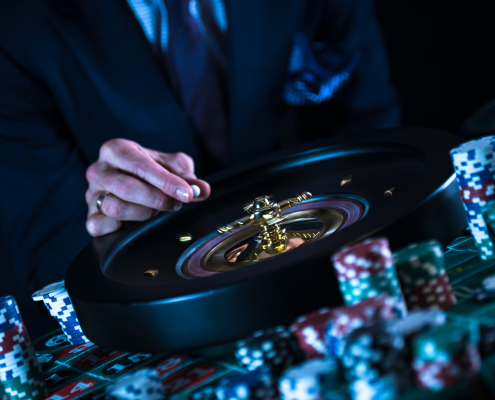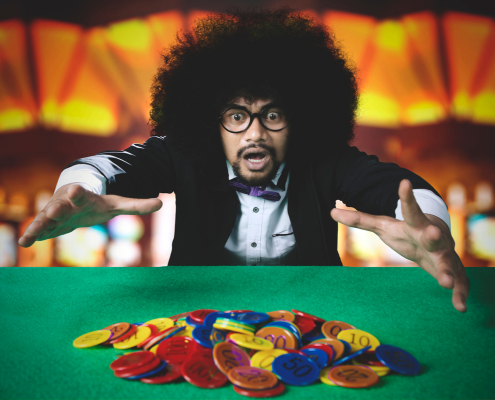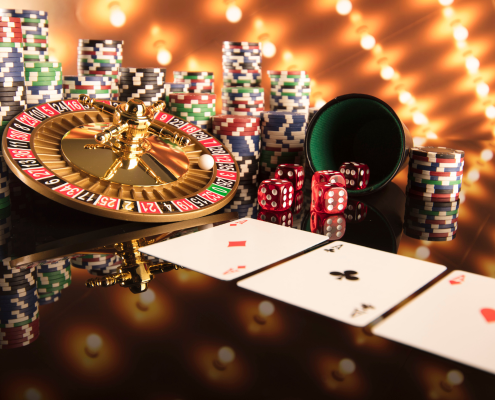Unraveling the Mind Games: The Psychology Behind Casino Games
Table of Contents
Jackpot Dreams: The Ultimate Motivation
The prospect of hitting a jackpot is a powerful motivator. It symbolizes the ultimate victory in gambling, inspiring players with the hope of achieving life-changing wins.
The Thrill of the Game
Beyond the allure of monetary gain, the sheer enjoyment of the game plays a significant role. The fun of strategy, the suspense of the unknown, and the social interaction available in live dealer games contribute to the overall entertainment value of gambling.
Psychological Effects of Winning and Losing
Winning elicits a sense of euphoria and validation while losing can prompt a determination to try again.
The psychological effects of winning and losing in gambling can be profound and multifaceted, influencing emotions, behaviors, and even long-term mental health.
Here’s an overview of how these outcomes can affect individuals:
Winning
- Euphoria and Overconfidence: Winning triggers a surge of dopamine, a neurotransmitter associated with pleasure and reward, leading to feelings of euphoria. This can foster an overconfidence bias, where individuals overestimate their skills or control over the outcome of future bets.
- Chasing the High: The excitement and positive feelings associated with winning can lead to a desire to experience those emotions again, pushing individuals to continue gambling in pursuit of more wins.
- Illusion of Control: Winning can create an illusion of control over chance outcomes, leading gamblers to believe they have a strategy or system that works, even in games of pure chance.
- Social Status and Validation: Big wins often come with social recognition and validation, which can enhance self-esteem but also reinforce gambling behavior.
Losing
- Chasing Losses: One of the most common psychological effects of losing is the desire to recoup losses, known as “chasing losses.” This can lead to a cycle of increased gambling, often with larger bets to try to win back what was lost.
- Emotional Distress: Losing can lead to feelings of sadness, frustration, and anger. Over time, these negative emotions can contribute to stress, depression, and anxiety, particularly if the losses are significant or accumulate over time.
- Financial Stress: The financial implications of gambling losses can lead to significant stress, impacting one’s ability to meet financial obligations and leading to further stress and mental health issues.
- Cognitive Distortions: Losing can reinforce cognitive distortions, such as the belief that a win is “due” after a series of losses (the gambler’s fallacy) or that luck will change if they just keep playing.
- Social and Relationship Impacts: Persistent losing can strain relationships, especially if gambling leads to financial instability. It can also lead to social isolation, as individuals may feel shame or guilt about their losses.
- Problem Gambling and Addiction: Continued losing (and winning) can lead to problem gambling or gambling addiction, where the individual is unable to control their gambling despite negative consequences to their life.
If you are concerned, find your nearest gambling Anonymous here.
FAQs
Q: Why do people continue to gamble despite losses?
A: The phenomenon known as the “gambler’s fallacy” and the constant pursuit of recouping losses drive people to continue gambling, fueled by the belief that a win is imminent.
Q: Can understanding the psychology behind gambling improve my gaming experience?
A: Yes, by understanding the psychological triggers and your response to them, you can make more informed decisions, enhancing both the enjoyment and responsibility of gaming.
Key Takeaways
- Risk and Reward: The psychological balance between risk and reward is a key appeal of casino games.
- Jackpot Allure: The dream of hitting a jackpot adds an intense level of excitement and motivation.
- Entertainment Value: Beyond financial aspirations, the enjoyment of the gameplay itself is a significant draw.
- Emotional Impact: The psychological effects of winning and losing drive the continuous engagement in gambling activities.
Conclusion: Beyond the Game
The psychology behind casino games is a fascinating journey into human behavior, motivation, and the allure of the unknown.
At Lucky Creek Casino, we embrace this complexity, offering a gaming experience that not only entertains but also enriches your understanding of the psychological play at work.





